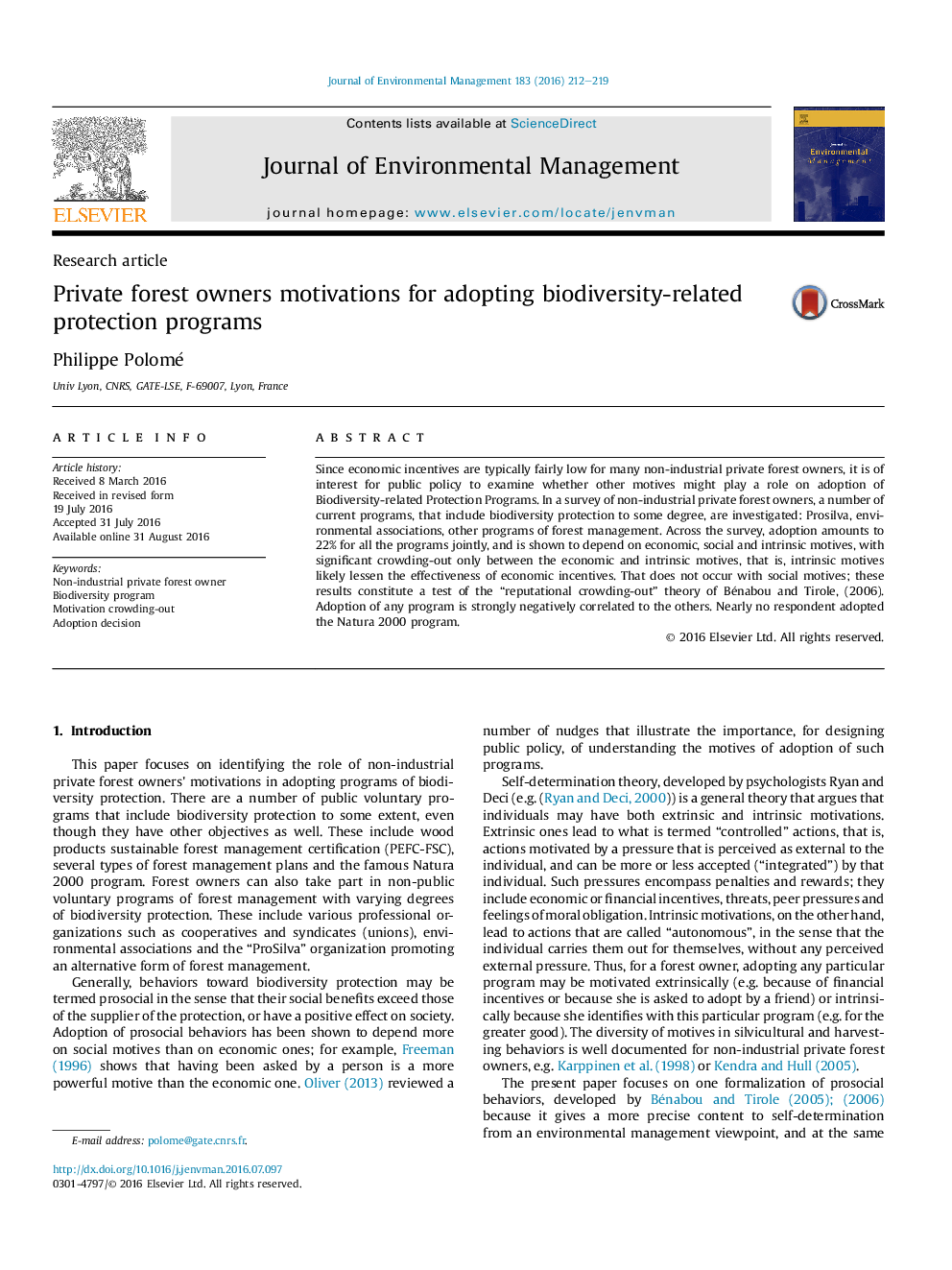| Article ID | Journal | Published Year | Pages | File Type |
|---|---|---|---|---|
| 5117305 | Journal of Environmental Management | 2016 | 8 Pages |
Abstract
Since economic incentives are typically fairly low for many non-industrial private forest owners, it is of interest for public policy to examine whether other motives might play a role on adoption of Biodiversity-related Protection Programs. In a survey of non-industrial private forest owners, a number of current programs, that include biodiversity protection to some degree, are investigated: Prosilva, environmental associations, other programs of forest management. Across the survey, adoption amounts to 22% for all the programs jointly, and is shown to depend on economic, social and intrinsic motives, with significant crowding-out only between the economic and intrinsic motives, that is, intrinsic motives likely lessen the effectiveness of economic incentives. That does not occur with social motives; these results constitute a test of the “reputational crowding-out” theory of Bénabou and Tirole, (2006). Adoption of any program is strongly negatively correlated to the others. Nearly no respondent adopted the Natura 2000 program.
Keywords
Related Topics
Physical Sciences and Engineering
Energy
Renewable Energy, Sustainability and the Environment
Authors
Philippe Polomé,
